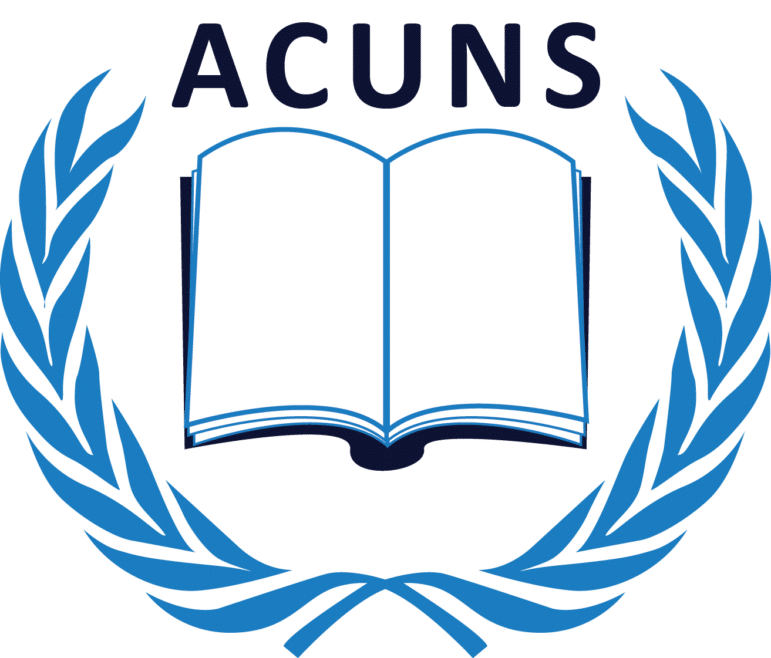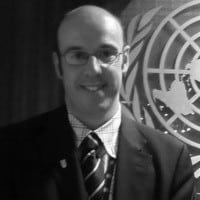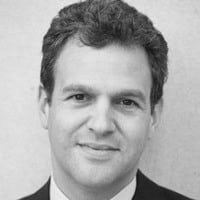2025 Award Eligibility and Requirements
Application Materials and Procedure
Applications are to be submitted via the blue button above. The application form asks applicants to provide biographical information and the contact information of two faculty advisors who will submit letters of recommendation. The form allows the required Dissertation Synopsis and CV to be uploaded. Only complete applications will be considered. The following information regards the parameters for the primary application materials. All application materials, including letters of recommendation, must be received by 15 April 2025.
Dissertation Synopsis: Applicants must provide a synopsis of their dissertation that contains a detailed account of the primary research question addressed, the content of research that has been conducted, and the significance of the research for scholarship on the UN and/or the UN system. The Synopsis must follow the formatting parameters listed below and cannot exceed 12 pages. Bibliographic references can adhere to any official citation format but must be applied consistently.
- Name of applicant on first page
- Times New Roman, 12-point font
- Single-spacing between lines
- 12 pages maximum length (including Bibliography and References)
- PDF file (.pdf)
- Consistent citation format (any style)
CV: Applicants must provide a curriculum vitae. The CV should provide information on the applicant’s past education, research, and relevant work experience. The CV should not exceed 5 pages and must be a PDF file. There are no other formatting requirements.
Letters of Recommendation: Applications must be supported by letters of recommendation from two (2) faculty members who are familiar with the applicant’s academic work. On the application form, applicants will be required to input the emails of their two faculty recommenders, who will automatically receive instructions regarding the submission of their recommendations. Applicants are encouraged to follow up with their recommenders to ensure that they have received the necessary notification and have submitted their letters of recommendation before the deadline.
Dissertation: Upload your dissertation in a PDF file.
Committee Assessment:
Your submission will be evaluated for (1) relevance of idea (2) originality (3) quality of the methodology, argument, and evidence (4) writing quality (5) quality and originality of policy recommendations.
Eligibility
The Dissertation Award recognizes research that directly concerns the UN and/or the UN system. Applications not related to the UN and/or UN system will not be considered.
Applicants for the Dissertation Award must be a member of ACUNS. Information about joining ACUNS can be found on the dedicated individual membership page. Applicants are invited to register for membership prior to submitting their application. You can submit an application right after becoming a member. Students should note that there are membership rates as low as $5 USD.
Applicants must have successfully defended their PhD or JSD dissertation in the period between 1 January 2024 and 15 April 2025. The date of each applicant’s dissertation defense will need to be confirmed by their faculty recommenders.
While an applicant’s Dissertation may itself be written in any language, all other application materials (Dissertation Synopsis, CV, and Letters of Recommendations) must be written in English.
Congratulations to the 2024 Dissertation Award Winners
JOHANNES SCHERZINGER | Switzerland
University of Zurich
Searching for Themes in a Chamber full of Noise? How Language Affects United Nations’ Actions and Decisions.
REBECCA YEMO | United States
University of Massachusetts Boston
Advancing Women’s Rights in Sub-Saharan Africa: The Role of the United Nations Universal Periodic Review
Past Award Winners
2023: Rob Grace
Brown University | United States
The Promise and Tragedy of Humanitarianism: How Aid Workers Negotiate the Politics of International Emergency Relief.
2022: Anine Hagemann
University of Copenhagen | Denmark
Inventing Protection: The birth of the United Nations protection of civilians sites in South Sudan
AND
2022: Jenna Russo
City University of New York (CUNY) | United States
Protecting Peace? Analyzing the Relationship Between the Protection of Civilians and Peace in UN Peacekeeping Settings
2021: Hannah Birkenkötter
Humboldt University of Berlin | Germany
A Concept at the Very Heart of the Organization’s Mission: Unpacking the Rule of Law in the United Nations
Honorable Mentions:
Sam Onapa | University of New England | United States | Dealing with Estranged Political Relationships: A Prerequisite for Sustainable Peace in South Sudan
Laura Peitz | Hertie School of Governance | Germany | Dual Nature of Multilateral Development Banks: Balancing Development and Financial Logics
Emma Saint | London School of Economics and Political Science | United Kingdom | Empowering Resistance: Revisionist States and the Underlying Dynamics of Norm Diffusion
2020: Eric Tanguay
Wilfrid Laurier University | Canada
Navigating Pathways for Peace in Hybrid Political Contexts: Examining Ghana’s Infrastructure for Peace
2019: Catriona Standfield
Syracuse University | United States
Gender and Legitimacy in United Nations Mediation
2018: Dorottya Mendly
Corvinus University of Budapest | Hungary
Constructing Agency: The UN in a Global Governmentality
2017: Gabriella Lloyd
The Ohio State University | United States
Mandating (In) Security? How UN Missions Endanger the Civilians They Intend to Protect
2016: Gabriela Bueno
University of Massachusetts: Boston | United States
The Institutional Landscape of International Forest Protection: Understanding Institutional Complexity in International Forest Governance
2015: Dahlia Simangan
The Australian National University | Australia
The Responsibility to Rebuild: Exploring the Future of UN’s Approach to Post-Conflict Peacebuilding
2014: Anjali Dayal
Georgetown University | United States
War, Repetition, Reputation: Peacekeeping and Links between Civil Wars
2013: Elodie Convergne
Sciences Po Paris | France and Visiting Scholar at Columbia University | United States
UN Special Envoy Mediation in Civil Wars: Polysemic Peace, Flexible Diplomacy, and Emancipation of the Secretariat
2012: Gabriel Cardona-Fox
The University of Texas at Austin | United States
When Soft Law Makes a Difference: A Global Study of Compliance with the International Regime to Protect Internally Displaced Persons
2011: Herman Salton
University of Wales: Aberystwyth | United Kingdom and Visiting Research Fellow at the City University of New York | United States
Dangerous Diplomacy: Anatomy of the UN Failure in Rwanda
2010: Carlotta Minnella
University of Oxford | United Kingdom
Delegitimizing Violence: The Cultural Sources of National Security and Counter-Terrorism Policies after September 11
2009: Megan Bradley
University of Oxford | United Kingdom
Just Return: Redress for Refugees and the Responsibilities of States
2008: Kelly Levin
Yale School of Forestry and Environment Studies | United States
Protecting Biodiversity in a Changing Climate: The Role of Science in Adaptation Policy
2007: Monika Krause
New York University | United States
The Logic of Relief: Humanitarian NGOs and Global Governance
2006: Christopher Blattman
University of California: Berkeley | United States
War Affected Youth in Northern Uganda
2005: NO AWARD
2004: Maria Ivanova
Yale University | United States
The Story of Stockholm, Explaining Global Environmental Governance
2003: Arturo Sotomayor
Columbia University | United States
Diversion Peace in South America: From Praetorianism to Peacekeeping?
2002: Gláucia Yoshiura Boyer
The Graduate Institute of International Studies | Switzerland
Recovering States from Disintegration: An Emerging International Cooperation Framework
2001: Sarah K. Kischer
Massachusetts Institute of Technology | United States
Refugees and the Spread of Civil War
2000: John Cockell
London School of Economics and Political Science | United Kingdom
Managing Self-Determination in Ethnic Conflict: International Society and the Kosovo Crisis
AND
2000: Ralph Wilde
Trinity College, Cambridge University | United Kingdom
The Administration of Territory by International Organisations in International Law
1999: Stephen Brown
New York University | United States
Donors and Democratization in Africa: Foreign Aid and Political Reform in Kenya and Malawi
AND
1999: Lisa Gelman
University of Pennsylvania | United States
Talking Politics: The Role of Conference Diplomacy and Non-State Actors in the Global Regime Process
1998: Sam Daws
Oxford University | United Kingdom
UN Security Council Reform: Negotiations on the Composition and Voting Procedure of the UN Security Council since 1944
AND
1998: Roland Paris
Yale University | United States
Consolidating Peace in War Shattered States: The Limits of Liberal Institutionalism
1997: Bruce D. Jones
London School of Economics and Political Science | United Kingdom
A Contingency Model of Third-Party Intervention in Civil Conflict: UN and NGO Intervention in Rwanda, 1990-95
AND
1997: Andrei Maximenko
University of South Carolina | United States
Managing Organizational Change for Promoting Human Security: Organizational learn and Institutional Reform in the UN
1996: Tamar Gutner
Massachusetts Institute of Technology | United States
Banking on the Environment: Multilateral Development Banks and their Environmental Performance in Central and Eastern Europe

























